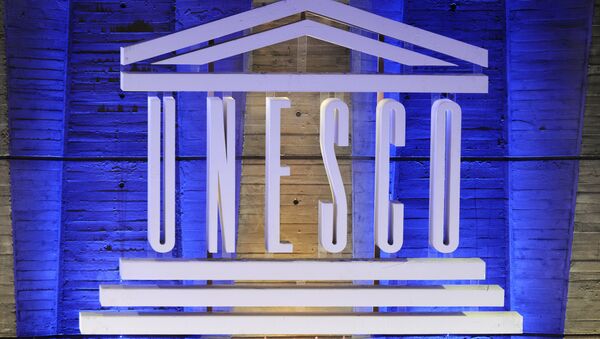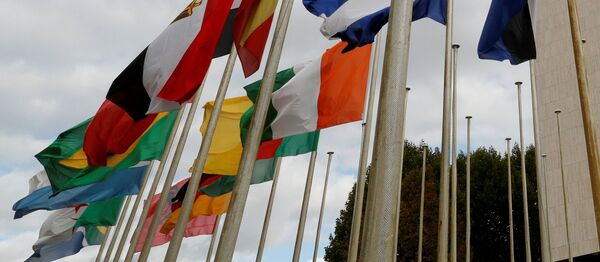ST. PETERSBURG (Sputnik) — Member of Knesset Nachman Shai expressed hope in comments to Sputnik on Sunday that UNESCO will change its anti-Israeli stance, adding that otherwise there will be no other choice for the country but to leave the organization.
"If UNESCO does not change its policy towards Israel, there is no alternative but to leave the organization but we are very hopeful that by the time the decision has to be implemented, which is in a year from now, UNESCO will turn back and will change its policy towards Israel. We are not eager to leave UNESCO but if UNESCO becomes an anti-Israeli organization, we have nothing to do there," Shai said on the sidelines of the 137th Assembly of the Inter-Parliamentary Union (IPU) in the Russian city of St. Petersburg.
On Thursday, Israeli Prime Minister Benjamin Netanyahu issued an order to begin preparations for Israel to withdraw from UNESCO after the United States announced its decision to leave the organization in late 2018, citing the need for fundamental reform within the organization and an anti-Israeli bias.
In May, Netanyahu ordered the Ministry of Foreign Affairs to reduce payments that Israel annually transfers to the United Nations in response to a ruling by UNESCO, which labeled Israel an occupant country of Jerusalem.
Support for US Stance Toward Iran
Israel supports US President Donald Trump's steps on tightening US policy toward Iran, Israeli lawmaker Yossi Yonah told Sputnik on Sunday.
"It doesn't seem that Trump is withdrawing from the agreement but he seems to be adding up some demands that the United States may have towards Iran such as in the area of supporting terrorist organization. He was making a point about the role of Iran in destabilizing a political reality in the Middle East and he also was raising concerns about Iran's plan to develop ballistic missiles. The natural question comes if you actually have no intention of developing your nuclear capabilities what on earth do you need ballistic missiles for?… In this respect Israel favorably views the American stance on Iranian international policies," Yonah said on the sidelines of the 137th Assembly of the Inter-Parliamentary Union (IPU) in the Russian city of St. Petersburg.
In August, Israeli Prime Minister Benjamin Netanyahu accused Iran of building sites in Syria and Lebanon to produce missiles allegedly aiming to eradicate Israel.
Leaders of Germany, France, Italy and the United Kingdom have expressed concern over Trump’s decision and warned the United States against reneging on the deal and reintroducing sanctions against Tehran.




